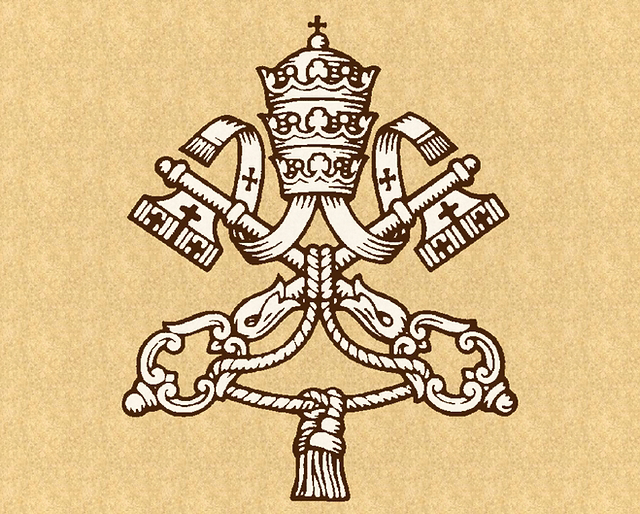DEFINITIONS OF TERMS USED IN THIS BLOG
DEFINITIONS OF TERMS USED IN THIS BLOG
[This page will be updated continually as I create more posts. I will add more definitions as I deem it necessary. If there are words I have used which you would like me to define and add to this page, please feel free to contact me at parkerzurbuchcatechesis@gmail.com ]
Ambiguity: A proposition which can be interpreted in two or more senses, one of which is unacceptable.
Authentic Interpreter: This phrase, in regard to the Church's Magisterium, comes from Vatican II's Dei Verbum 10. The original latin is "authentice interpretandi." The word "authentice" has meant in the past (14th century) to mean "authoritative." Some have posited that "authentice" in the context of Dei Verbum 10 uses this older definition of "authoritative." The modern word "authentic" generally means "corresponding to the fact" instead of "authoritative."
Dangerous Error*: I consider a dangerous error to be those propositions which could been given the following theological censures: erronea (erroneous), hæresi proxima (next to heresy), errori proxima (next to error).
See my article here for definitions and explanations of each of these censures: The Theological Censures.
Divine Revelation: The Word of God. The contents of Sacred Tradition (oral or written) which ended with the death of the last apostle. It is the purpose of the Magisterium to guard and interpret Divine Revelation (see Dei Verbum 10).
Dogma: a proposition which has its origin as being Divinely Revealed. Primary Objects of Infallibility are considered to be dogmas.
Ecclesiology: the study of the Church, its nature, and how it operates.
Extraordinary Magisterium: the Church's living teaching office which is definitive and infallible (each words being used synonomously).
Heresy: the denial of a dogma.
Inerrancy: the state of a static document in which such document does not contain any errors.
Infallibility: the action of a living authority to promulgate a statement which is guaranteed to be true.
Infallible Safety: the notion that the ordinary magisterium of the Church cannot promulgate dangerous errors or heresy. Also known as the "charism of safety."
Magisterium: The living teaching office of the Church, which is the authentic interpreter of the word of God (Divine Revelation). It's authority "is exercised in the name of Jesus Christ." The Magisterium "is not above the word of God, but serves it, teaching only what has been handed on, listening to it devoutly, guarding it scrupulously and explaining it faithfully in accord with a divine commission and with the help of the Holy Spirit" (Dei Verbum, 10).
Ordinary Magisterium: the non-definitive, non-infallible teaching office of the Church. This magisterium is described in Humani Generis, 20; Lumen Gentium, 25; and Praestantia Scripturae, 4.
I give an explaination of the assent owed to the Ordinary Magisterium in this article: ASSENT TO THE NON-DEFINITIVE MAGISTERIUM.
Organ of the Magisterium: an ecclesiastical office, held by a person or group of persons, which exercise magisterial authority.
Practically Useless: a thing which has been rendered unable to excercise its intended purpose of action.
Primary Objects of Infallibility: A dogma of the faith defined by an infallible (definitive) statement by the Extraordinary Magisterium of the Church. See Vatican I. Pastor Aeternus. Ch. 4. No. 9.
Safe Errors*: Those errors which could be considered potentially safe are the following: sapiens hæresim, errorem (smacking of heresy or error); suspecta de hæresi, errore (suspected of heresy or error).
See my article here for definitions and explanations of each of these censures: The Theological Censures.
Safety**: By “safe”, I mean the same thing as “secure”, that it will not jeopardize the integrity of the virtues of faith, hope, and charity, that it will not threaten one’s salvation or Catholicity to believe or practice, that it will not impede the Church’s goals of preserving revelation and sanctifying souls, that it will not contradict positively or negatively anything infallibly taught by the Church, meaning that it will not command us to disbelieve something that must be believed de fide, nor command us to believe something that must be disbelieved de fide, nor inculcate certain other censurable propositions.
Secondary Objects of Infallibility: "Not every solemn papal definition will result in a dogma... [because] Vatican I left open the possibility that the Pope might define a truth that is not revealed, but connected with revelation, or, in other words, a truth pertaining to the secondary object of infallibility." See Francis Sullivan "Creative Fidelity" p. 80 (first page of Ch. 6: Identifying Defined Dogmas in Papal Documents).
Footnotes:
*These definitions are taken from the Catholic Encyclopedia in its section on the Theological Censures:
New Advent - The Theological Censures
** These definitions are taken from the essay of Daniel Jackson entitled "On the Infallible Safety of the Papal Ordinary Magisterium." A link to this essay can be found here:

Comments
Post a Comment